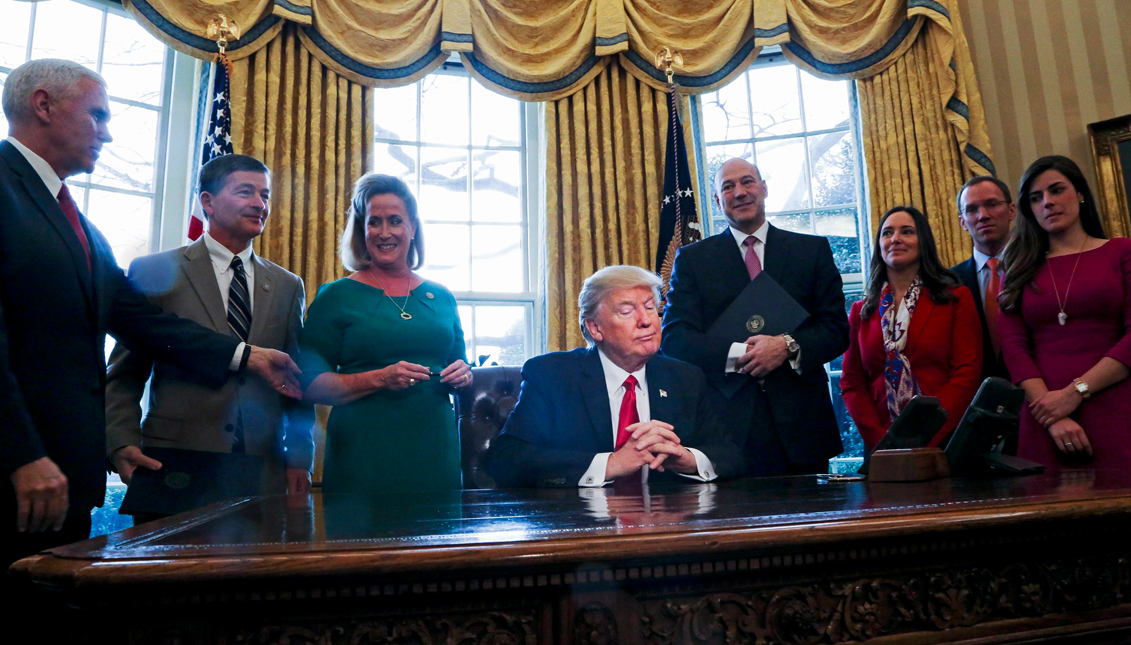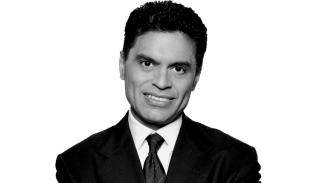
[OP-ED]: What does it mean to agree with Donald Trump?
After his spat with Mexico, after the travel ban, this week Donald Trump did something that surprised me. He put in place a policy with which I agreed.
MORE IN THIS SECTION
After his spat with Mexico, after the travel ban, this week Donald Trump did something that surprised me. He put in place a policy with which I agreed. He placed a smart check on ever-proliferating federal regulations. His executive action requires any department that wants to add a new regulation to get rid of two existing ones. It might seem gimmicky, but the British government adopted just this “one-in, two-out” rule in 2012 and it’s worked well. In fact, while I find much of Trump’s worldview alarming, I agree in the main with some important parts of his program -- tax reform, infrastructure investment, deregulation, civil service reform. But the larger question I keep asking myself is: Does Donald Trump want someone like me to agree with him?
The Trump White House has decided that the best way to deal with any institution or group that might stand in its way is to relentlessly try to delegitimize it. This has led to a ferocious strategy of attack toward the media, which the president now says is “the opposition party.” His chief strategist, Stephen Bannon, urges the media to “keep its mouth shut and just listen for awhile.” Sean Hannity, the Fox News host who has become an unofficial spokesman for the White House, describes the media as “a bunch of overpaid, out of touch, lazy millionaires that have nothing but contempt for the people that do make this country great.”
At this point, one could note that, if we are to listen to America, almost 3 million more Americans voted for Hillary Clinton than for Trump (who received a share of the popular vote that was lower than Mitt Romney’s, in fact lower than most of the losers of recent presidential elections). And as for which of these groups makes America great, I’m not sure what criteria to use, but if it is generating wealth and contributing to GDP, it’s not even close. According to the Brookings Institution, the 500 counties won by Clinton produced 64 percent of U.S. economic output, while the 2,600 counties won by Trump produced just 36 percent of GDP. Use any economic measure -- employment, start-ups, innovation -- and the areas that score highest voted heavily against Trump.
The much maligned urban elites may be out of touch with the rest of the country, but they still pay its bills. A few years ago, The Economist compared how much each American state contributed to the federal coffers against the funds they received from Washington. The basic pattern is simple: It is blue states, which voted against Trump in 2016, that fund the red states that voted for him. From 1990 to 2009, excluding Maine (which split its votes between the two candidates), Clinton states collectively paid $2.4 trillion more in federal taxes than they received in federal spending, while Trump states altogether received $1.3 trillion more than they paid.
But this is not the way I think we should look at America. It’s one country, and different parts and people contribute in different ways. We are living through times in which economics and technology separate us -- some people and places prosper while others languish. The goal should be to use politics as a mechanism to bring us together through both public policy and public discourse. The truth is, there are no real Americans and fake Americans (though there is real news and fake news).
Most presidents begin their tenure by trying to reach out to their political opponents, signaling that they want to represent those who didn’t vote for them as well as those that did, and generally trying to bring the country together. Trump has made almost no effort in this regard, simply asserting that the country was divided before he was elected and thus absolving himself of any responsibility for unifying it. In office, he has mercilessly attacked anyone who dares to disagree with him, whether senators, prime ministers or student protesters. It might be a good way to play to his base but it’s a terrible way to lead the country.
The challenge for the media must be to ensure that we don’t mirror Trump’s own attitude of hostility. We cannot absorb and reflect that negativity. We are not the opposition. We are a civic institution, explicitly protected by the Constitution, that is meant to hold government accountable and provide real information to the citizenry. I hope to be able to do that. Along the way when I have to, I will disagree vigorously with Donald Trump. But just as important, when warranted, whether he likes it or not, I will agree with him.







LEAVE A COMMENT:
Join the discussion! Leave a comment.